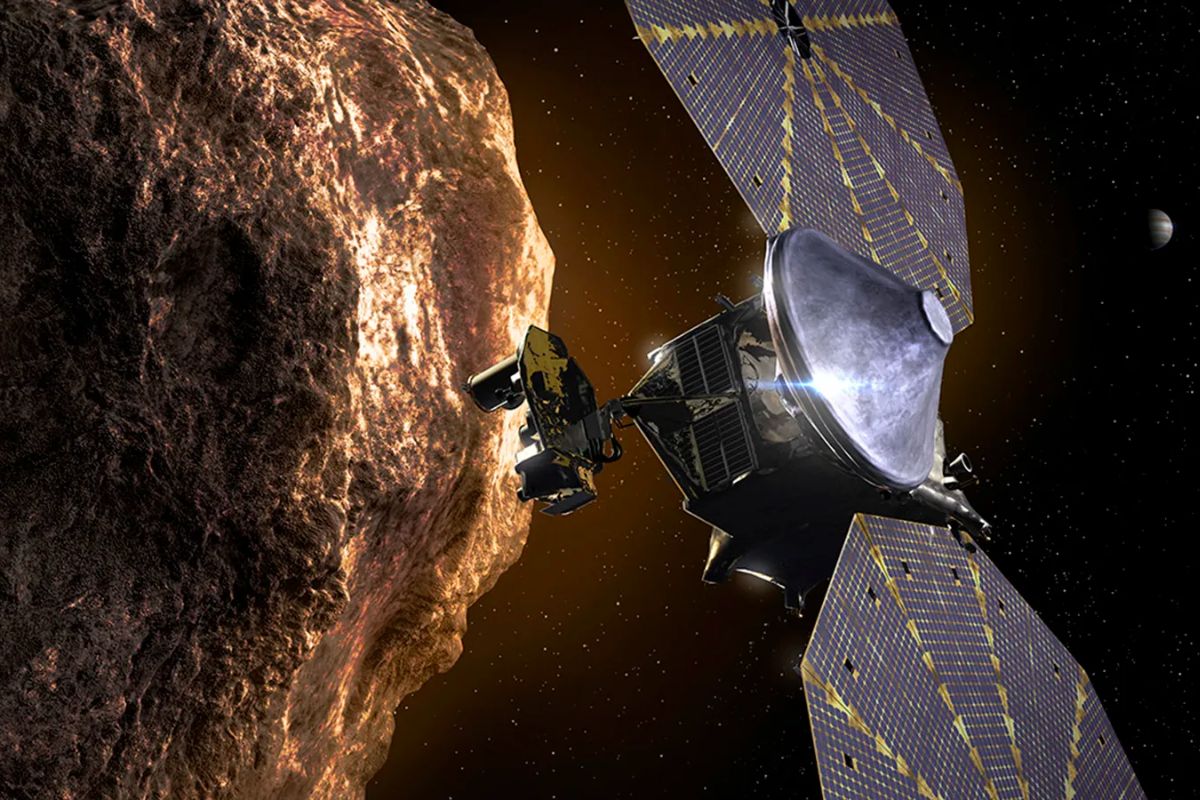Leading NASA’s space mission, Lucy, is currently in orbit, starting a historic journey to the Trojan asteroids that surround Jupiter in its solar orbit. These asteroids have never been studied before, so this is an exciting project, and we can’t wait to see what ground-breaking findings are discovered.
On Wednesday, January 31, the Lucy spacecraft’s main engines will be turned on for the first time in space. Having launched in August 2021, this will be the spacecraft’s first activation. Lucy will burn about half of its fuel when the main engines start up. NASA has scheduled a bigger manoeuvre for Saturday, February 3, following this.
Lucy’s velocity is intended to be altered by approximately 2,000 miles per hour (3,217 kilometres per hour) during these two early 2024 operations.
The spacecraft had experienced velocity changes of about 10 mph (16 kph) prior to these two actions, but they were not substantial enough to necessitate the use of the spacecraft’s primary thrusters.
When Lucy travels near Earth in December 2024, it will accomplish a major milestone that will change its trajectory due to a gravitational boost. The spaceship will get closest to Earth during this encounter, coming within 230 miles (370 km). Lucy will have a second chance to use Earth’s gravity during the flyby, which could lead to it taking a different course.

In particular, incorporating these 2024 movements will change the spacecraft’s course from its current orbit around the sun, which hardly touches the main asteroid belt between Mars and Jupiter.
On November 1, 2023, the spacecraft was able to successfully approach the tiny asteroid known as Dinkinesh, or “Dinky,” thanks to this modification. During this mission, Lucy aided NASA researchers in uncovering the surprising fact that Dinky is, in fact, a binary asteroid system.
The spacecraft will travel outside of the main asteroid belt due to Lucy’s new orbit, which will allow it to visit the minor main asteroid belt object 52246 Donaldjohanson in April 2025.
After that, Lucy will set out to travel to Jupiter and the Trojan territory. These Trojans are separated into two separate clusters and live inside the gas giant’s solar orbit. The gas giant is positioned behind the second cluster, known as the Trojan camp, and slightly ahead of the first cluster, known as the Greek camp.
The spacecraft Lucy, scheduled to launch in 2027, will go to the Greek camp of Trojan asteroids. It will first stop in August at the asteroid Eurybates and its partner, the smaller object known as Queta.
The spacecraft will fly by four more Trojan asteroids and three moonlets after its encounter with the Eurybates, culminating in a final visit to Earth in 2031 before the mission ends in 2033.
